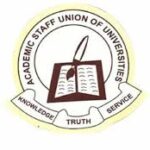Northern Nigeria is a vast tract of landlocked space in the Central Sudan bordered by the republics of Niger, Chad and Cameroun; its furthest southern border marked by the territories of the Borgu, Yoruba, Nupe, Igala, Fulani and other Kwa-language speaking people. The admixture of an Islamic influence via the trans-Saharan trade route, and the very accommodating policies of the British colonial administration which favored a propping of the early 19th Century Islamic reformer Uthman dan Fodio’s system of Emirates, resulted in the peoples of the north not being exposed to Western education until about a century after the peoples in the southern parts of the country. While a rich history of Arabic-based literature existed, the extent of the known world of our fathers quadrupled in the decade starting from 1901. English, not Arabic, became the language of world expression. Consequently, while the people of the north have had their unique experiences, these experiences have hardly weighed in the national consciousness for they are only recently, in the last thirty years really, being expressed in the language that counts – in English.
Perhaps the most dominant mental image that is conjured by the phrase “Northern Nigeria” is that of the Durbar, that traditional panorama of homage to Emirs, a fleeting movie of men ceremonially robed on splendid horses charging down a field and drawing rein before their suzerain amidst the dust – with the exited ululation of crowds of talakawa {working class} as a necessary backdrop? The durbar is a fitting metaphor for the North and the cusp of this essay is to break this movie-metaphor down to its rudiments, with the eyes of Rushdie’s involved criticism, to seek the points where the picture is less than it seems, the glint in the eye, the swing of a dagger, a whiff of perfume; the places where the perception is weak, threatening the fidelity of the entire picture.
At the head of the charge of men from the north on the field of Nigerian literature is the figure of Abubakar Imam Kagara who is recognized as a paterfamilias. His works, primarily Ruwan Bagaja and Magana Jari Ce, published in 1934 and 1939 respectively, were a bridge between the old tradition of northern literature and the new Western ways. Seeing that his times were swiftly changing, he had the vision, quite radical, to write neither in Arabic nor in the popular ajami {Hausa language written in Arabic script}. He chose Hausa written in the Roman script for he felt that the Hausa language, with its remarkable adaptability as a Sudanese pidgin, would be the lingua franca of Nigeria. This assumption was of course frustrated by a Western educated who few who feared a mega-sized Northern Region. Thus was Imam’s contribution overshadowed two decades later by Chinua Achebe in 1959, with his famous novel written with the same sense of cultural identity, but written in English. After Imam’s experimentation, a lull in Northern writing occurred until the late 60’s which saw the contributions of Labo Yari and Mohammed Sule whose “The Undesirable Element” remains one of the classics of African literature. Abubakar Gimba became the leading light of northern writing in English in the late ‘80’s and ‘90’s. Perhaps recovering from trauma, or simply in recognition of the importance of writing in English, the ‘90’s saw the emergence of many Northern writers ranging from Abubakar Othman, Ismail Bala and Ahmed Maiwada in poetry to Maria Ajima and Victor Dugga in drama. However, with the exception of Abubakar Gimba’s contributions in prose, which while noteworthy are hardly stratospheric, there have been no important novels in English from northern Nigeria since Yari and Sule’s contributions in the mid ‘70’s. Neither has the poetry or drama been exceptional. And the question is – why?
Contemporary northern writing is now centered on four towns {Minna, Jos, Kano and Kaduna} and this writer has been sufficiently exposed to all of them to afford a critical address. Among the older contemporary writers in the north are B. M. Dzukogi, Ismail Bala, Yusuf Adamu, Musa Okapnachi, Razinat Mohammed and E. E. Sule who has also been the preeminent literary critic. The younger contemporary writers include Gimba Kakanda, Abdulaziz Ahmad Adbulaziz, Awaal Idris Evuti, Elnathan John, Binta Shuaibu Abdallah, Alkasim Abdulkadir and Abubakar Adam Ibrahim.
The first doom of our northern horsemen of the Word is perhaps a shocking one, for it is not more or less than a sense of unjustifiable hubris. How writers with so little experience begin to see themselves as oracles is to say the least surprising. Indicative of this is my experience with writing from Kano generally, a locale which seems to have for the most part abandoned the rundimentaries of the English language – tense and syntax. On first noticing this anomaly, one is unsure whether this is done for some justifiable stylistic reason or the other but when this same error is found even in the work of older writers, one begins immediately to suspect a more sinister truth. The only exception to this seems to be the writings of the academics Yusuf Adamu and Ismail Bala. To the man, Kano writers have answered to the effect that they are contributing to the English language with this bad brew of sentences! And it begs the question, how can you contribute to the building of the English language without knowing the way the weight is distributed at its foundations? How can you put something on nothing and expect it to stand? A desire to fly is a wonderful and poetic gift in the human imaginative spirit, but it must come further down a sequence that starts with walking, then perhaps running.
For the most part, these culpable writers cannot even be said to have made “mistakes” of grammar – this excuse being unsustainable; they simply do not know better. And this is what southern Nigeria and the rest of the world reads and are very justified in ascribing puerility to northern Nigerian writing! This is so bad that even the critic can no longer be heard, for whenever a critic disconnects himself from a sympathy to what the writer wants to say and points out that he has not indeed said this in the form required by correct language, he is buried immediately by howls from the friends of the writer in question who all have a shared ownership of the blocks of language, to use, misuse and abuse as they wish. In prose, in poetry, the story is the same. While I have taken Kano as the center of this unfortunate malaise, I will say it is not in that city’s exclusive domain. This sense of irresponsible hubris has been read all over northern Nigeria, from Sokoto to Maiduguri and while it seems more a serious problem in the north west, least so in the north Central, this flaw has been seen enough to stamp ALL writing from the north. There exists a very nimble intellectual and creative ability in northern Nigeria and this becomes evident when one takes the time to read between the lines. But the placement of the runes is fatally important. An apposite example suffices; if that fabulous diamond, the Koh I Noor, is left in a bucket of broken glass, its beauty would be no more noticed than that of the astoundingly perceptive creativity beneath our literal northern literary rags. If this flaw is to be fixed, assuming one can get past the billows of hot air surrounding our young writers especially, one would advocate a return to studying rudimentary language. Dubious thanks to the thriving book piracy business in the south, such gems as “Brighter Grammar” are cheaply available – that is, if young northern writers do not see it as beneath them to buy these primers.
 Join Daily Trust WhatsApp Community For Quick Access To News and Happenings Around You.
Join Daily Trust WhatsApp Community For Quick Access To News and Happenings Around You.

